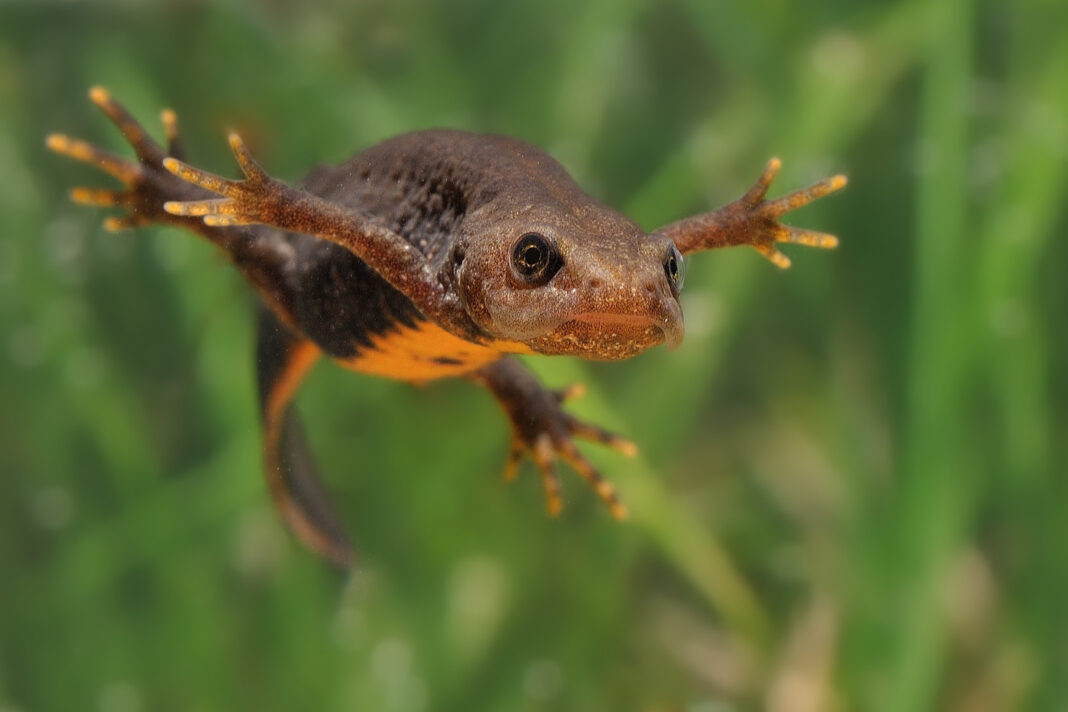
NETWORK Rail has signed a ‘groundbreaking’ industry first agreement to protect newts during the construction of a major track upgrade.
The rail infrastructure organisation received a licence from Natural England which will ensure that any newt habitat impacted by teams working on the Midland main line upgrade is compensated for by new habitat creation.
The project is being carried out in collaboration with NatureSpace Partnership, an organisation which aims to ensure a sustainable future for newts. It is hoped that the project will help them to continue to grow and protect the species’ habitat.
Gary Walsh, route director for Network Rail’s East Midlands route, said, “We’re committed to supporting wildlife and increasing biodiversity. This can be a tricky balance for our industry which relies upon heavy engineering and important standards to keep everyone safe.
“We’re delighted to have received a licence from Natural England that will allow us to actively improve how we look after this vital protected species while still delivering infrastructure investment which is essential to the community and economy as we look to come out of the Covid pandemic.”
Dr. Lorna Shaw, from the district level licensing team at Natural England, added, “We are pleased to have worked with the NatureSpace Partnership and Network Rail over this licence. We are keen to directly offer similar licenses to others interested in improving conservation outcomes for great crested newts and delivering best practice.”
“This licence application was complex, requiring time and attention to detail to assess but this approach will be repaid many times over through the upfront, secure new habitat for great crested newts and the reduction in delays to the license holder that this strategic approach affords. This important work reflects how Natural England are working with others to bring about nature’s recovery.”
Dr Tom Tew, CEO of NatureSpace, commented, “The great thing about this licence is that it delivers a long-term and landscape-scale approach to the conservation of a rare and declining species. Not only are individual newts moved out of harm’s way during rail operations, but we and our partners are creating and managing top-quality new ponds and habitats along the length of the railway line. It’s quicker for Network Rail and avoids delays to engineering but it’s also much better for great crested newts and for a whole host of other wildlife too.”








